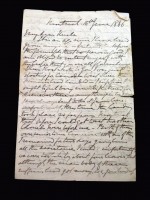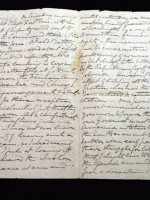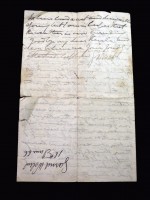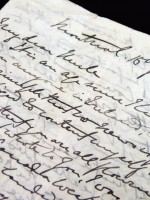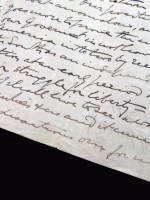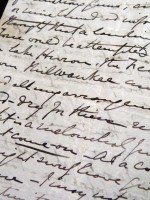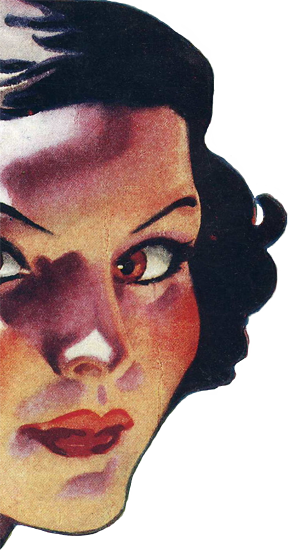Field Marshal Garnet Wolseley, handwritten letter from Montreal, 1866
including the Fenian Raids
Author
Publisher
Printing Details
This is a handwritten letter from Garnet Wolseley (1833–1913), a major figure in the late Victorian British Army, sent from Montreal in June 1866 in the immediate aftermath of the Fenian raids of 1866 carried out by the Irish republican Fenian Brotherhood.
The letter is on four sides of a single sheet of paper measuring 27 × 21cm, folded once for writing (and again for posting), and is written in black ink. It was sent from Montreal to an unnamed maternal uncle of Wolseley's, living in Ireland.
Of chief interest is Wolseley's mention of the raids, "When I last wrote to you, I was just starting in Canada West where the Fenians had landed – I suppose I ought to feel very much flattered for whenever there is anything to be done I am always sent to do it from here: unfortunately, this time the landing took place so far from Montreal that before I could get west two other colonels were before me." and of the his work in Canada, "On Tuesday morning at daylight I left Fort Erie, with a regiment of Infantry and went to Stratford to command there. I had a nice little force: a Field Battery of Armstrong guns, and about eight or nine hundred infantry. It is thought that a landing in larger force would be attempted at Godrich (Goderich) on Lake Huron, the Fenians coming from Milwaukee and Chicago.", and on the Fenians being awarded belligerents' rights by Washington, and of the Republican party's hatred towards the President, Andrew Johnson. He ends with "every day goes more to prove the utter folly of our Government in not having split up America into two by recognising the south as an independent section at an early period during their struggle for liberty – I know that I shall live to see a war between the Yankees + us and it must be, I fear, a disastrous one for us."
Here is the full text, square brackets have been used where I haven't been able to make out exactly what is written but it's only ever a word or two.
Montreal 15 June 1866
My dear Uncle
It is an age since I have heard from anyone in Ireland, but after (?) the principle that no news is good. I am obliged to content myself with the hope that you are all flourishing. When I last wrote to you, I was just starting in Canada West where the Fenians had landed – I suppose I ought to feel very much flattered for whenever there is anything to be done I am always sent to do it from here: unfortunately, this time the landing took place so far from Montreal that before I could get west two other colonels were before me. Both of them were senior to me however: with one of them I remained for two days giving him all the assistance I could: unfortunately we were too late by about four hours, but although the main body of these ruffians had got away, we picked up some stragglers. On Tuesday morning at daylight I left Fort Erie, with a regiment of Infantry and went to Stratford to command there. I had a nice little force: a Field Battery of Armstrong guns, and about eight or nine hundred infantry. It is thought that a landing in larger force would be attempted at Godrich (Goderich) on Lake Huron, the Fenians coming from Milwaukee and Chicago. I had all my arrangements so cut-and-dry for their reception that it is a [?] pity that they did not come-one – at a compatriot, they might surely have given one a chance – I may not ever have the opportunity of having such a chance again, so I need [hardly?] tell you how I feel at losing it. Every one believed the [?] Fenian fiasco at an end – until yesterday, we received word of the motion having passed the congress at Washington by a very large majority, to accord these Fenians, all belligerent rights – This circumstance may I fear be misconstrued at home: its [? party owing ?] of course to hatred against us but chiefly to the bitter hatred felt by the Republican Party against Mr Johnson. However, it has had the effect of [stopping?] all the troops on the frontier who had the Raj before being ordered to return to their casual stations – out position here is most anomalous, and every day goes more to prove the utter folly of our Government in not having split up America into two by recognising the south as an independent section at an early period during their struggle for liberty – I know that I shall live to see a war between the Yankees + us and it must be, I fear, a disastrous one for us.
We have had a wet and disagreeable [spring / evening?] but I am in the hope that the weather is now [?]. Goodbye ny dear uncle and ever believe me, your fond and attached nephew, Garnet.
[Signed again: Garnet Wolseley, 16th June 66)
Garnet Wolseley rose from shopkeeper's son to Field Marshal. His father, Major Garnet Joseph Wolseley of the King's Own Scottish Borderers (25th Foot), died when Garnet was seven depriving him of being educated in England. He was eventually commissioned into the 12th Foot in 1852, and saw a great deal of foreign service: Second Burma War, Crimea, Indian Mutiny, and the Second China War, which enabled him to display his exceptional abilities. his staff duty in Canada included him being in charge of training camps during the Fenian Raids, and as Deputy Quarter Master General. His reputation was enhanced by this service, added to which he wrote Soldiers' Pocket Book for Field Service (1869) which was an immediate success and remained in print for many editions, he collaborated with Cardwell on army reform, and it is even thought he was the model for W S Gilbert's "I Am the Very Model of a Modern Major-General" song from The Pirates of Penzance. His later career saw him in South Africa to repair the disaster after Isandhlwana, and then Egypt in 1882 to relieve General Gordon.
Condition
The letter is in good condition. There is some tears to the edge along the central fold, and some creasing to the corners, but the letter remains readable.
Further images are available on request.
Sold
